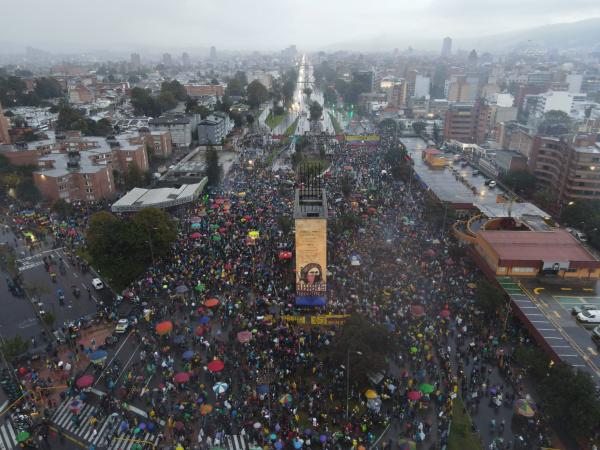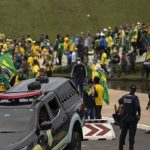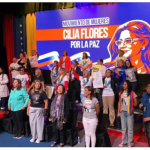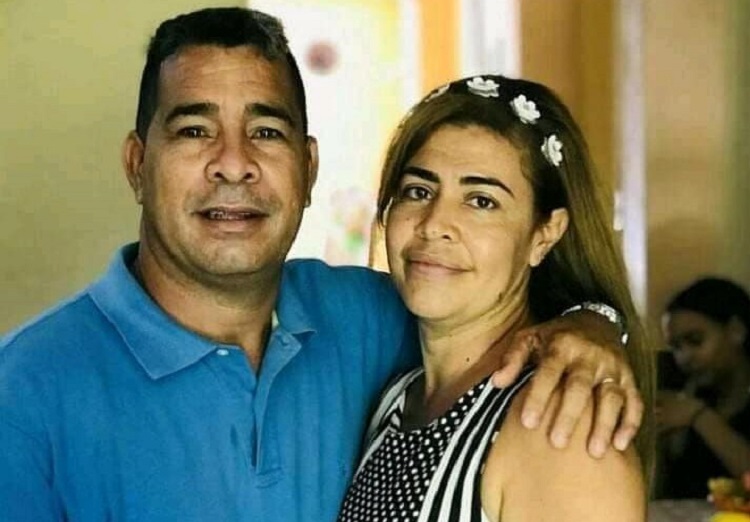Last year, Esteban Piedrahita was president of the Cali Chamber of Commerce when the capital of the Valley and the region faced the social outbreak. Today from the academy, as rector of the Icesi, he analyzes what happened and contributes his view of the future. Although the figures show improvement, he says that he sees fragmented society. He maintains that presidential candidates must propose differential policies for the Pacific and the Southwest of the country.
(Read: Annual inflation in April was 9.23%, the highest in 21 years).
How do you see the effect of the social explosion in Cali and the Valley a year later?
what happened in Cali and in the Valley It was dramatic with the drop in all indicators, in employment, in industrial production, in energy consumption, in mobility, comparable in many cases to the first confinement. Then it moderated but the impact was very hard and that is not well understood in other regions where there were damages but not like here.
And what happens today?
The good news is that quantitatively, economic activity, tied to household income, has rebounded well. The employment in Cali fell into unemployment but until the last measurement, of the five main capitals, it is the city that grows the most in terms of employment. We had a very pronounced drop in employment, in formal employment, in hobbies for compensation funds and happily we have been recovering. The same in production, to some extent in the renewal and creation of companies. In addition, it must be taken into account that quantitatively the impacts for some have also meant loss of life and business.
What other analysis do you do?
Qualitatively, although I would like to think that there have been lessons from this and that the private sector has been devoted to meeting certain social demands and getting closer to young people, one does notice the city is much more disorderly, as respect for the norm, especially on the road, it has deteriorated a lot. The destruction of the MIO stations and public furniture has influenced the behavior of people on the street.
This, in some way, has also contributed to deteriorating the security environment. It is proven that when public infrastructure deteriorates, people’s behavior tends to deteriorate and the incentive to respect the norm decreases. The public infrastructure has been reestablishing itself, not at the speed one would like.
President of the Cali Chamber of Commerce.
And on a social level?
I hope that we have learned lessons, the economy, let’s say globally, has recovered quite well, but individually there are many tragedies and losses to mourn. This is one a rather fragmented city and society.
And what has been the role of the authorities?
I am not an expert in what the Mayor’s Office and the Governor’s Office are doing, but yes, let’s say that confidence in the municipal government has decreased. Many people perceived that the mayor was suddenly taking sides and in certain sectors that did not sit well. The polls clearly show it.
(Besides: The taxes you must pay in the second half of 2022).
Can you repeat what happened a year ago?
This type of thing can happen in any society, but in Colombia or Cali, where there are inequities, where there is low cohesion or low trust, and where there is also criminal economies, These types of situations are likely to reappear.
We hope that we can experience the election process calmly, that the citizens accept the results, whatever they may be, and that we can build from there.
Many of the structural difficulties in our region are still there. We have structural factors that make this kind of thing happen to a greater extent here.
One is a very complex environment, we are surrounded by poor regions, quite forgotten, where there is a strong presence of criminal economies.
It should be noted that there are organizations and initiatives such as Compromiso Valle, from the private sector, where we participate as a university, which is doing important work with young people who participated in the social outbreak.
Are there proposals from the presidential candidates to give answers?
I do not know in detail the platforms of the candidates for our region. I think Cali has problems of its own and many possibilities and strengths.
Suffer the difficulties of a complex environment in which many policies would have to be reviewed, including the failed drug war, and decriminalization considered as an alternative solution.
Some candidates have talked about it, others haven’t. It worries me that those who are leading in the polls don’t talk about it.
(Keep reading: Pension funds: in what the savings of the contributors are invested).
What we do need now is a focus on the Southwest and the differential Pacific.
BRIEFCASE
















